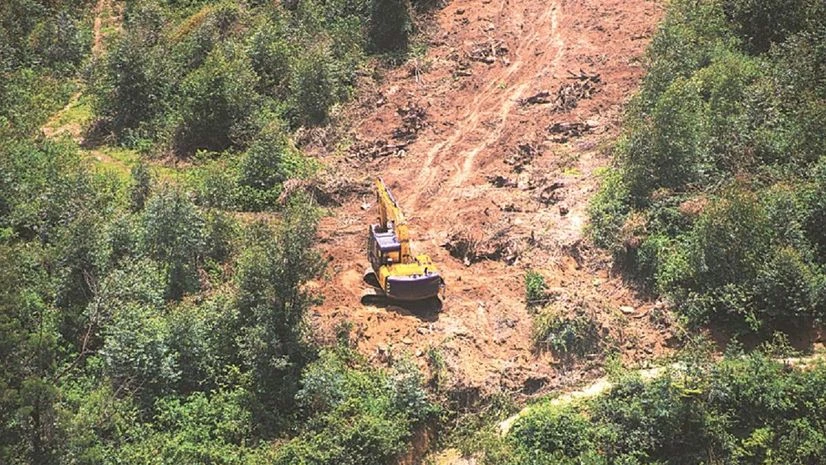India's system for granting environmental clearances is badly broken and should be completely shut down to dispel any illusions about their effectiveness, eminent environmentalist Sunita Narain has said.
In an interview with PTI, Narain -- the director general of independent think-tank Centre for Science and Environment (CSE) -- suggested that the government overhaul the system to strike a balance between environmental preservation and development.
Expressing concern over the decriminalisation of environmental laws in India, Narain said the current system for granting environmental and forest clearances, and penalising polluters is "so broken that it should be completely shut down so that we have no illusion of anything that is not working".
Regarding environmental impact assessments, Narain pointed out the lack of accountability of committees granting clearances.
"The panel lays down hundreds of conditions so that it is not held to account but there is no way to know if the conditions have been complied with," Narain said.
"The regional offices of the environment ministry responsible for compliance monitoring are understaffed and do not have the (monitoring) capacity," she said, adding that information on compliance is not made public.
More From This Section
Narain raised serious concerns over the construction of back-to-back hydropower projects in the Himalayas, terming the process of granting environmental clearances to these a "sham".
"You are re-engineering a river and you say even 10 per cent of the flow (remaining) in the river is okay. This is the Ganga I am talking about. Each project has been cleared by a separate committee," she said.
Narain urged the government to redesign the system for the 21st century and return to the original intent of mitigating adverse environmental impacts.
Asked about the effectiveness of climate attribution studies, Narain emphasised the need for a globally-accepted methodology for such studies to prevent politicisation and ensure fair compensation in future loss-and-damage agreements.
Climate attribution studies ascertain the contribution of climate change to disasters.
"These studies can very quickly turn political. Therefore, the methodology of these studies has to be much more universal. They have to be owned by countries of the Global South. Otherwise, in a loss-and-damage agreement tomorrow, someone could argue that according to this attribution study, only 10 per cent of the disaster was caused by climate change. So, we will only pay you 10 per cent of the cost," Narain said.
Loss and damage refers to irreversible impacts of climate change.
(Only the headline and picture of this report may have been reworked by the Business Standard staff; the rest of the content is auto-generated from a syndicated feed.)

)
